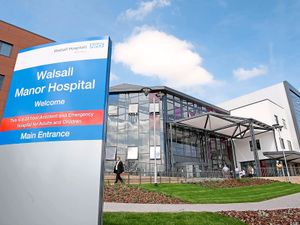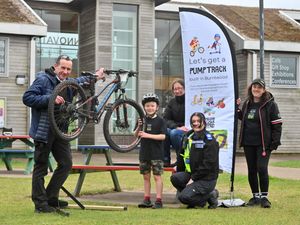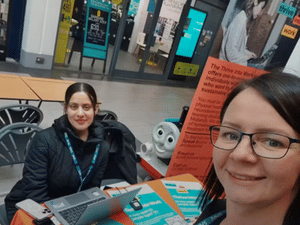Walsall stroke patients could have to travel to Wolverhampton
Stroke patients could be made to have their treatment in another town after health bosses declared the current service 'unsustainable'.

National health guidelines state that for a hospital trust to run a viable 'hyper acute stroke unit' there should be a minimum of 600 confirmed stroke patients each year who are treated.
But the number of patients using the Walsall Healthcare NHS Trust for stroke services have fallen well short, with only 420 cases confirmed.
Now patients currently treated in Walsall face having to make a trip to Wolverhampton's New Cross Hospital.
Bosses at the trust have recommended that Walsall CCG considers commissioning the Royal Wolverhampton NHS Trust to 'provide both hyper-acute and acute parts of the stroke pathway for all Walsall patients'.
A report into stroke services in Walsall, discussed at a meeting of the Walsall Healthcare NHS Trust board yesterday, reads: "At present Wolverhampton and Walsall see respectively approximately 600 and 400 confirmed stroke patients each year.
"To be a viable hyper acute stroke service it is recommended that there are a minimum of 600 confirmed stroke patients each year.
"For Walsall Healthcare Trust the income from activity of 400 confirmed stroke patients is insufficient to fund staffing levels to meet the HASU requirements and there is no potential to increase stroke numbers in future, despite considerations of patient flow arising from other stroke reconfigured areas such as Burton.
"Whilst the formal response from the trust to how it will manage to achieve these standards by November 2017 is awaited, it is expected to advise that it is not able to meet these standards, again due to reduced numbers and the inability to fund and support the clinical capacity required by that time, and the service is therefore unsustainable."
Hospital bosses have said that they will be carrying out consultation with the public and the CCG before making a final decision.
Richard Kirby, chief executive of Walsall Manor Hospital, said: "Engagement and experience with patients tells us that they prefer to be closer to home when recovering.
"This means that early supported discharge and community stroke rehabilitation elements of the patient pathway would continue to be provided in Walsall.
“There will now be a period of further public engagement before the trust and CCG make a final decision on the way forward."
Professor Simon Brake, chief officer, NHS Walsall CCG, said: "Moving forward we know that to deliver acute stroke services for Walsall residents, we require a reasonable scale to ensure that there is sufficient consultant coverage to provide safe and sustainable services.
"The CCG will be working with the Trust and Healthwatch Walsall to carry out further public engagement and this will be used to help the CCG decide the best proposal to take forward.
"By redesigning stroke services and putting patients at the centre, we can help ensure patients receive the best care, at the right time, in the right place with the best possible outcome and allow for resources to be used effectively."





